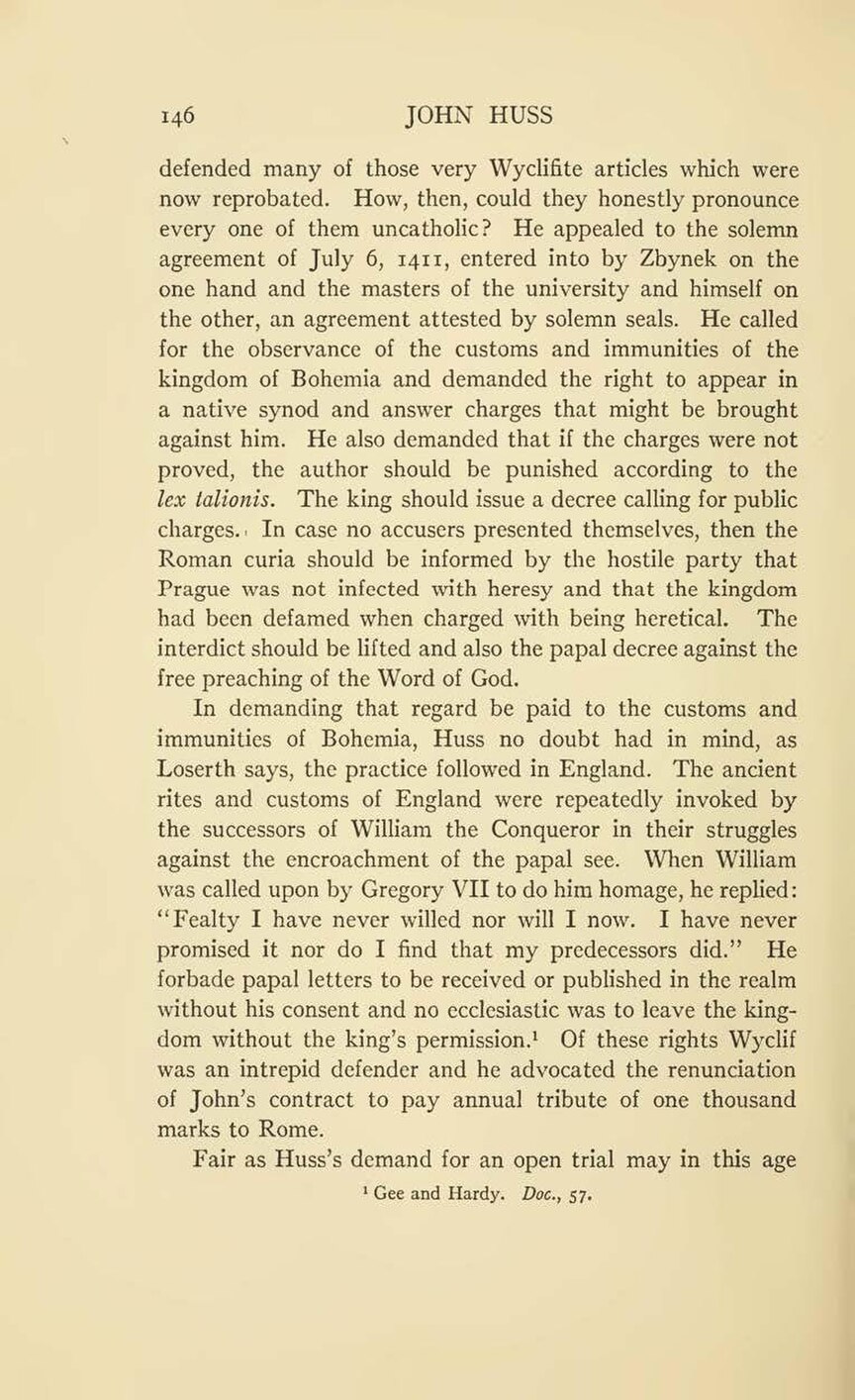defended many of those very Wyclifite articles which were now reprobated. How, then, could they honestly pronounce every one of them uncatholic? He appealed to the solemn agreement of July 6, 1411, entered into by Zbynek on the one hand and the masters of the university and himself on the other, an agreement attested by solemn seals. He called for the observance of the customs and immunities of the kingdom of Bohemia and demanded the right to appear in a native synod and answer charges that might be brought against him. He also demanded that iſ the charges were not proved, the author should be punished according to the lex talionis. The king should issue a decree calling for public charges. In case no accusers presented themselves, then the Roman curia should be informed by the hostile party that Prague was not infected with heresy and that the kingdom had been defamed when charged with being heretical. The interdict should be liſted and also the papal decree against the free preaching of the Word of God.
In demanding that regard be paid to the customs and immunities of Bohemia, Huss no doubt had in mind, as Loserth says, the practice followed in England. The ancient rites and customs of England were repeatedly invoked by the successors of William the Conqueror in their struggles against the encroachment of the papal see. When William was called upon by Gregory VII to do him homage, he replied: “Fealty I have never willed nor will I now. I have never promised it nor do I find that my predecessors did.” He forbade papal letters to be received or published in the realm without his consent and no ecclesiastic was to leave the kingdom without the king’s permission.[1] Of these rights Wyclif was an intrepid defender and he advocated the renunciation of John’s contract to pay annual tribute of one thousand marks to Rome.
Fair as Huss’s demand for an open trial may in this age
- ↑ Gee and Hardy. Doc., 57.
